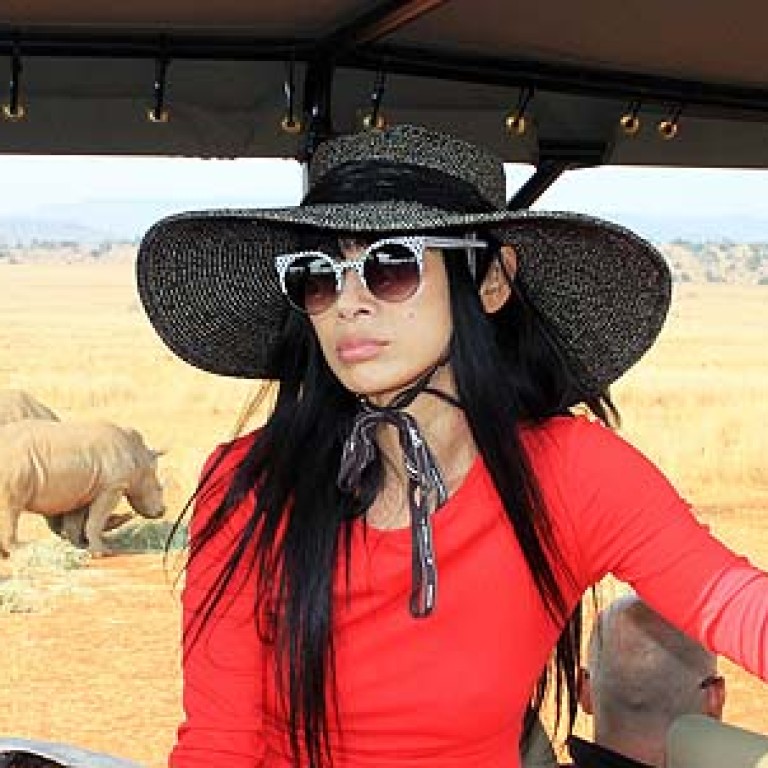
Chinese celebrity power harnessed to cut Asian demand for rhino horn
Chinese-American actress Bai Ling tries to persuade Asians not to buy horns for medicine
Rhino conservationists are harnessing China’s celebrity power in a bid to cut Asian demand for rhino horn, which has caused record slaughters in South Africa over the past six years.
Chinese-American actress Bai Ling has been deployed to South African game reserves as part of an awareness campaign highlighting illegal rhino killings, which look set to break last year’s record of 668.
The actress is known for roles in the US television series Lost and Entourage and films like Wild Wild West and The Crow.
The spate of rhino killings has been triggered by demand for horn in Asia where consumers, especially in China and Vietnam, believe they have medicinal value.
Wealthy businessmen, celebrities and public officials in Vietnam buy rhino horn as a status symbol, according to a study recently released by the World Wide Fund for Nature.
Bai, who was born in Chengdu, expressed shock at the brutality of the rhino killings.
“I didn’t know how badly they were hurt and wounded and treated, and how lonely. And how they’re going to die,” she said after seeing a video of brutally maimed rhinos.
Poachers shoot bullets or a dart at the rhino, then hack off its horn with machetes, often cutting into the skull while the animal is still conscious.
‘They don’t know what’s going on’
Chinese consumers have to be educated about rhino poaching, Bai added, saying she had written about the issue on her blog in a bid to raise awareness.
“They don’t know what’s going on. They believe there are thousands and thousands of rhinos over there, and they don’t know how the rhino horn is produced. Maybe they think this is just like cows or chickens,” she said.
In fact the number of rhinos has dwindled to about 25,000.
“Basically you have 85 per cent of all the rhinos in South Africa,” she said during a visit to the Entabeni Game Reserve in South Africa’s northern Limpopo province.
“If we don’t stop this, they’re going to be finished.”
“We invited Bai Ling because she has more than two million fans and followers in Asia.”
Campaign organiser Dex Kotze hopes Bai’s active social media profile will promote the message in Asia.
“This was the first group of celebrities invited to Africa to assist us in creating global awareness about rhino and elephant poaching,” Kotze said.
“This is a social media operation, social media marketing, that’s why we needed celebrities active on social media,” he continued.
“We invited Bai Ling because she has more than two million fans and followers in Asia, especially in China, where the market for rhino horn and elephant ivory is.”
Bai has already posted pictures on weibo of herself petting a young rhino at Entabeni’s orphanage for animals whose mothers have been slaughtered.
Sophisticated international syndicates run the rhino trade, while prosecutors have mostly targeted lower-level poachers.
New hunters are easily drawn from the impoverished communities surrounding Africa’s nature reserves.
Even the South African army’s deployment in the world-famous Kruger National Park, along with hi-tech surveillance equipment, have failed to curb the killings.

Over 600 rhinos have been poached in South Africa this year, up from 13 in 2007.
“If you don’t find the mother’s body, the baby will stay next to it for days on end and just die of starvation and dehydration,” said American model and actress Christie Brinkley, who has also been involved in the campaign.
Brinkley, 59, who has been involved in environmental activism in the past, said multiple strategies were needed to target the poaching.
They involve “mainly raising the consciousness of the people who are creating the demand, and also trying to replace the income that the poachers desperately need to feed their families,” she said.
Bai and Brinkley will next travel to Kenya to extend the campaign to elephant poaching for Asia’s ivory trade.
Over 25,000 elephants were poached last year, according to the Convention on International Trade in Endangered Species (CITES).
